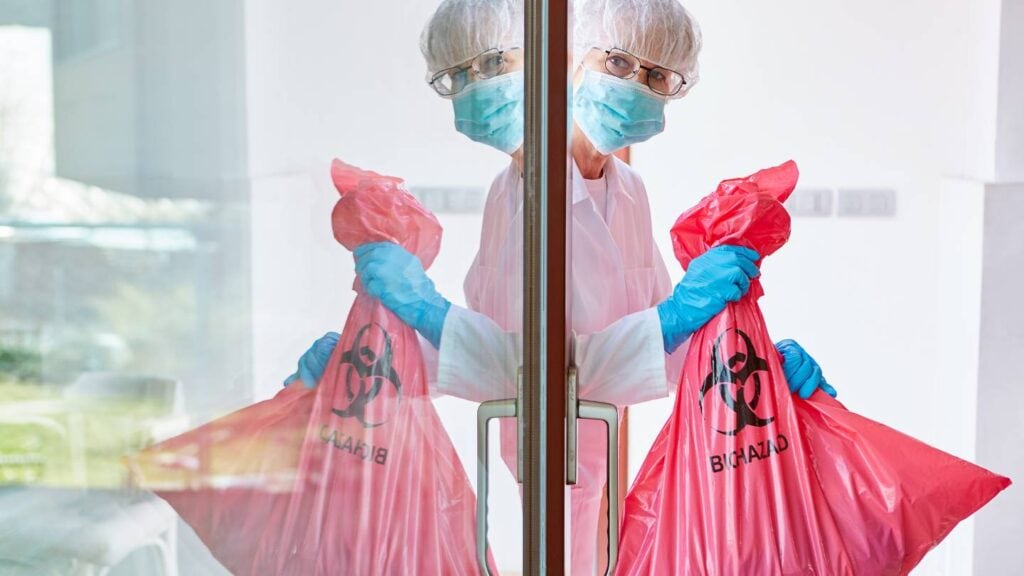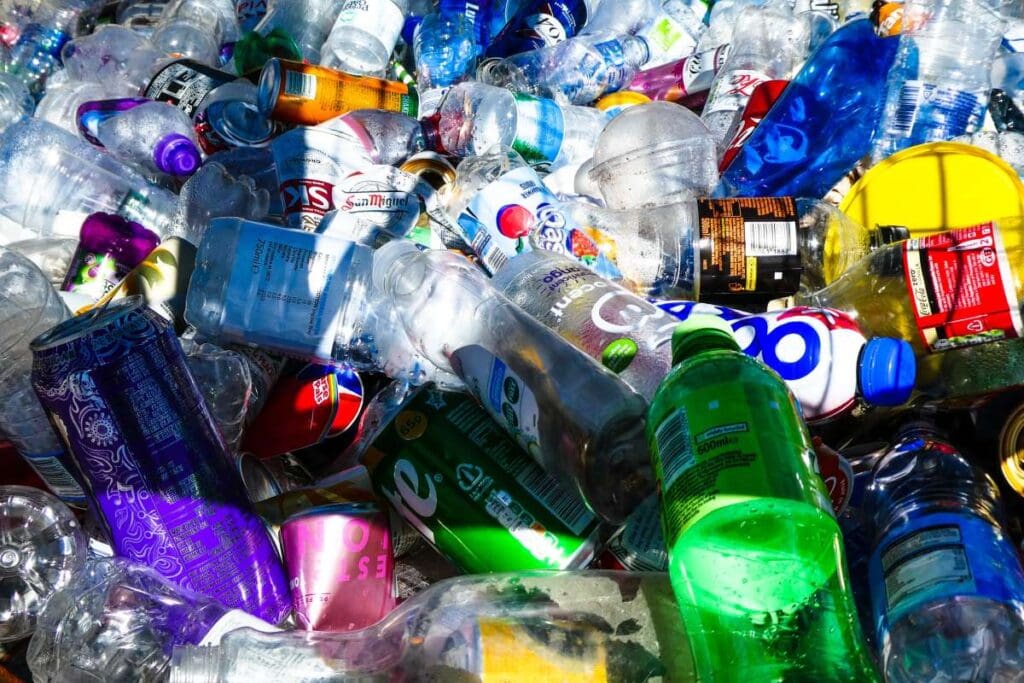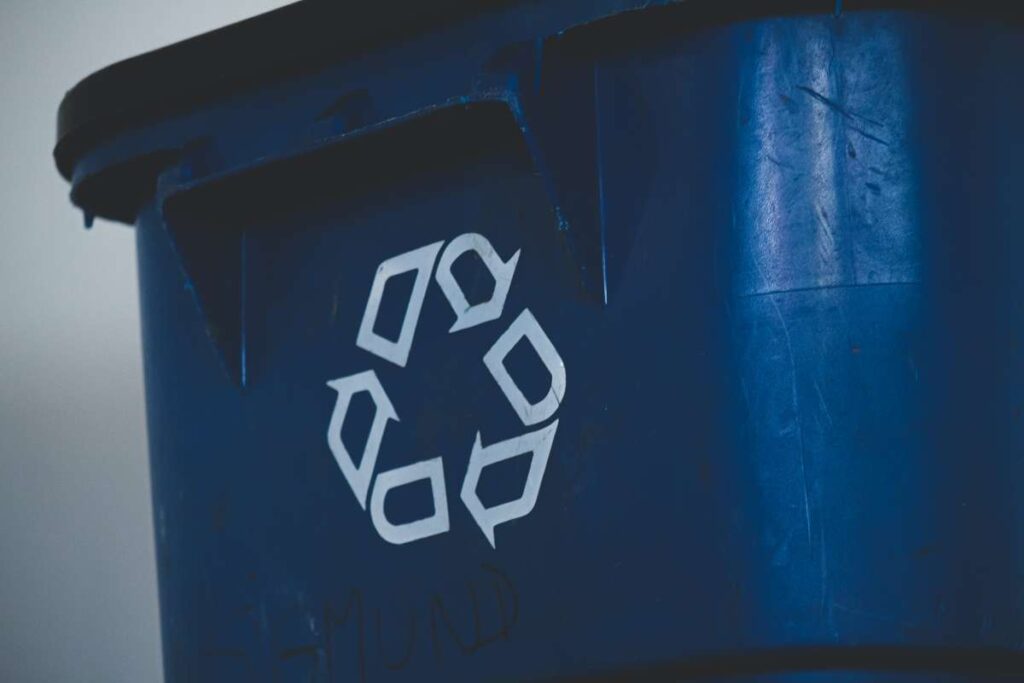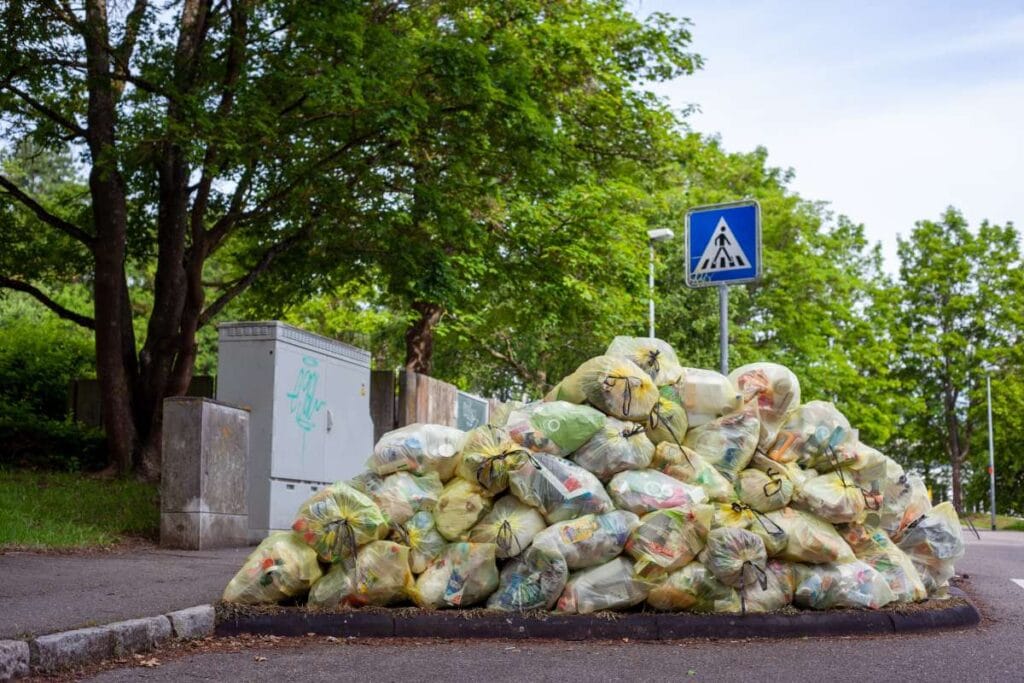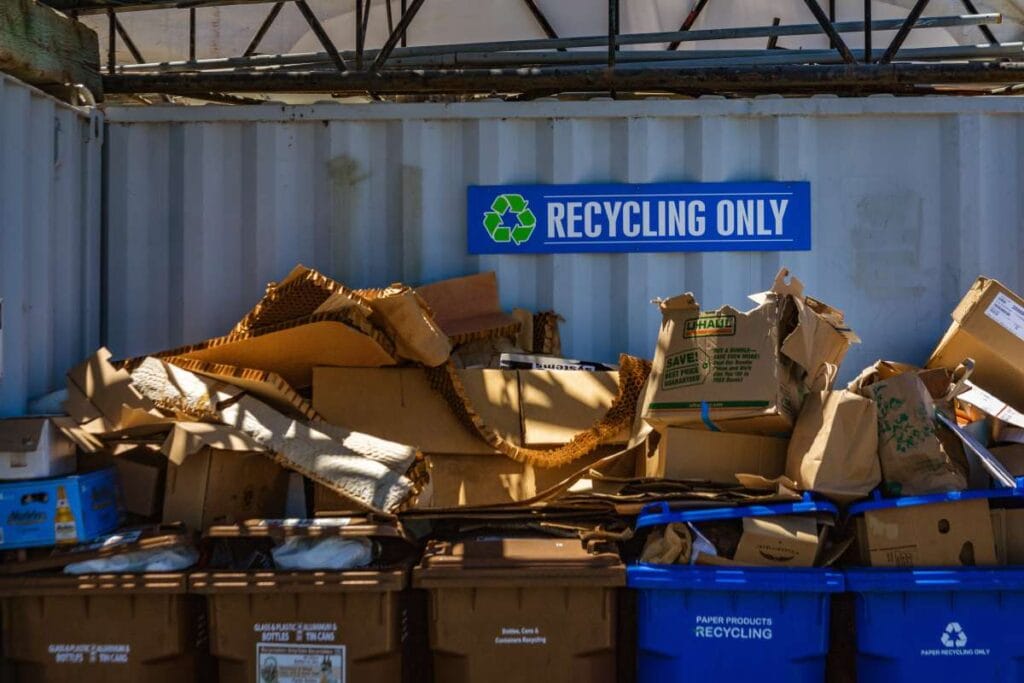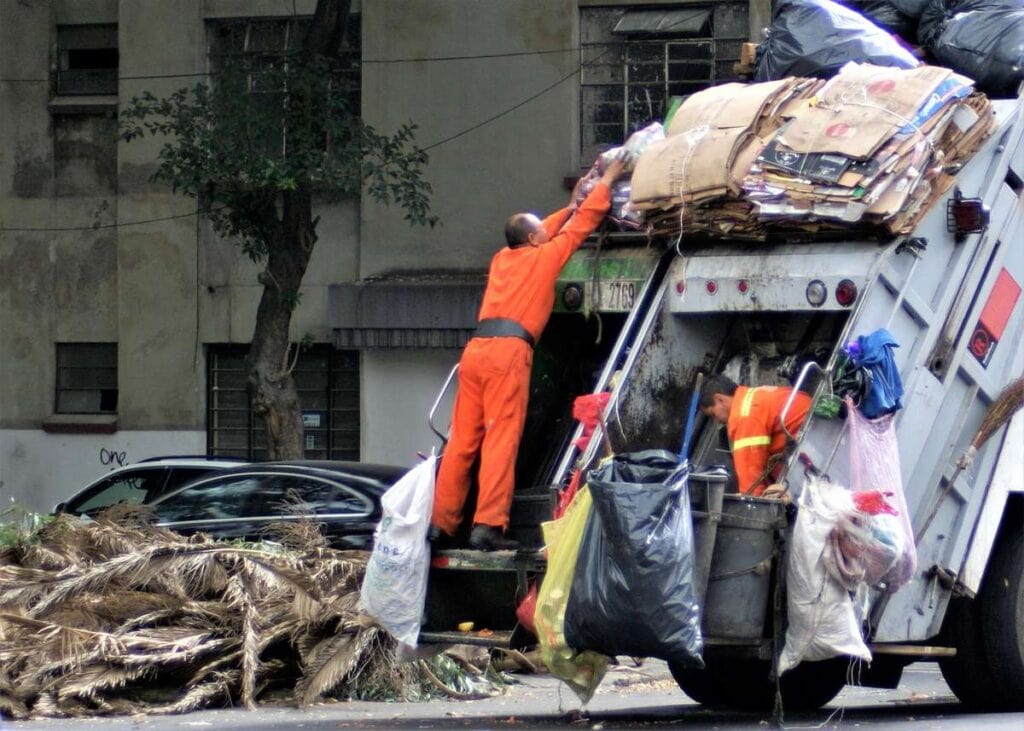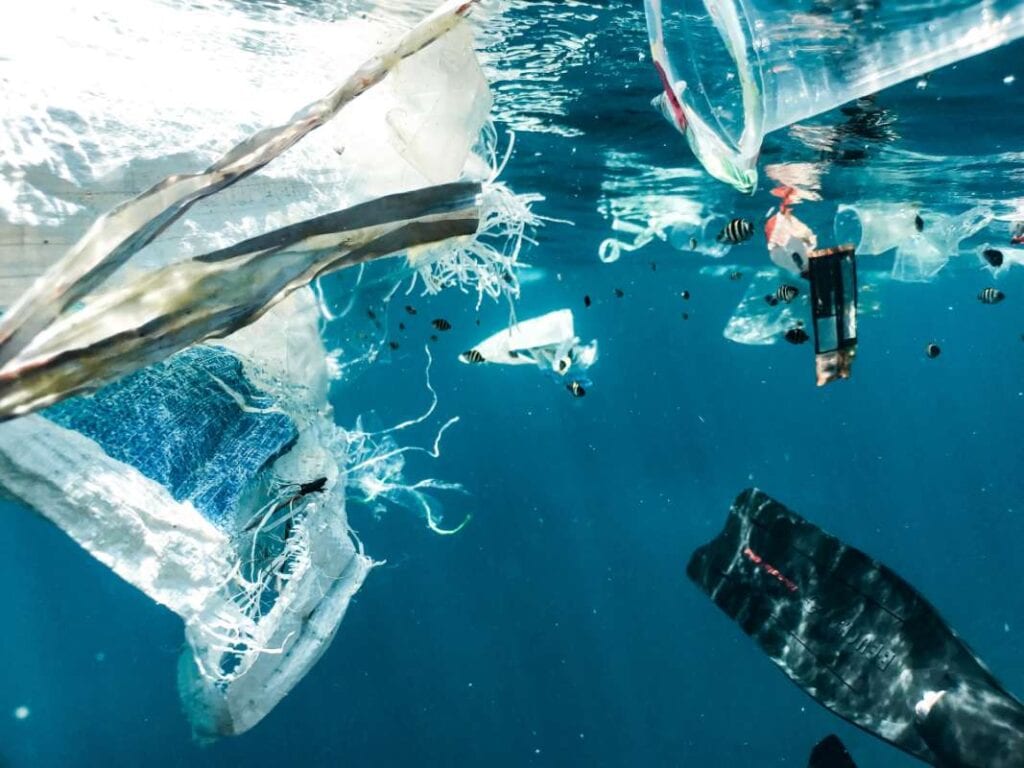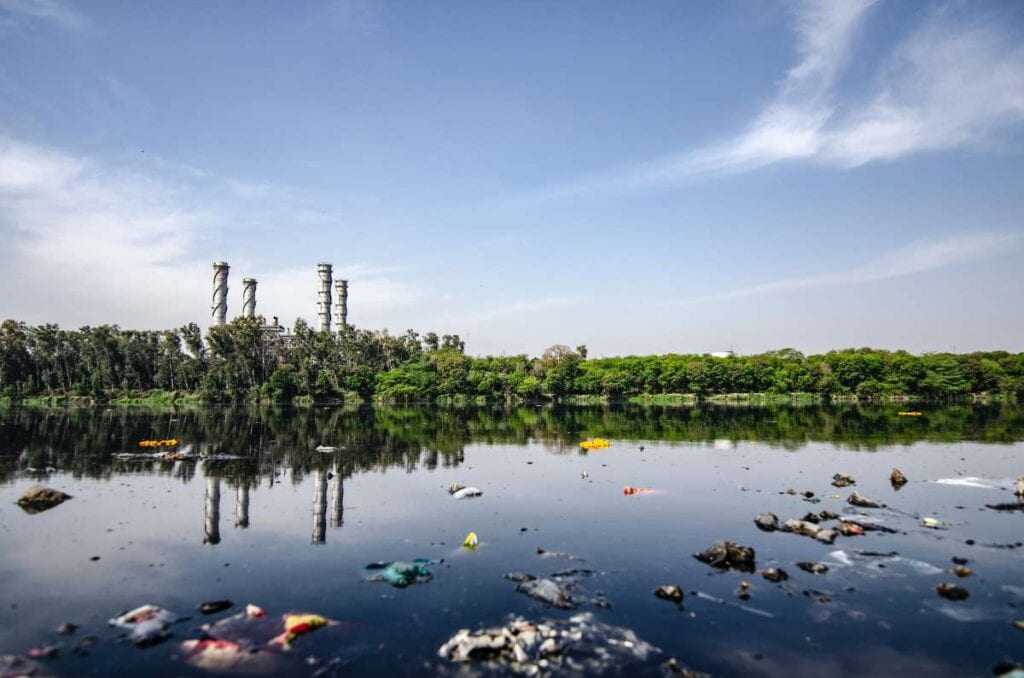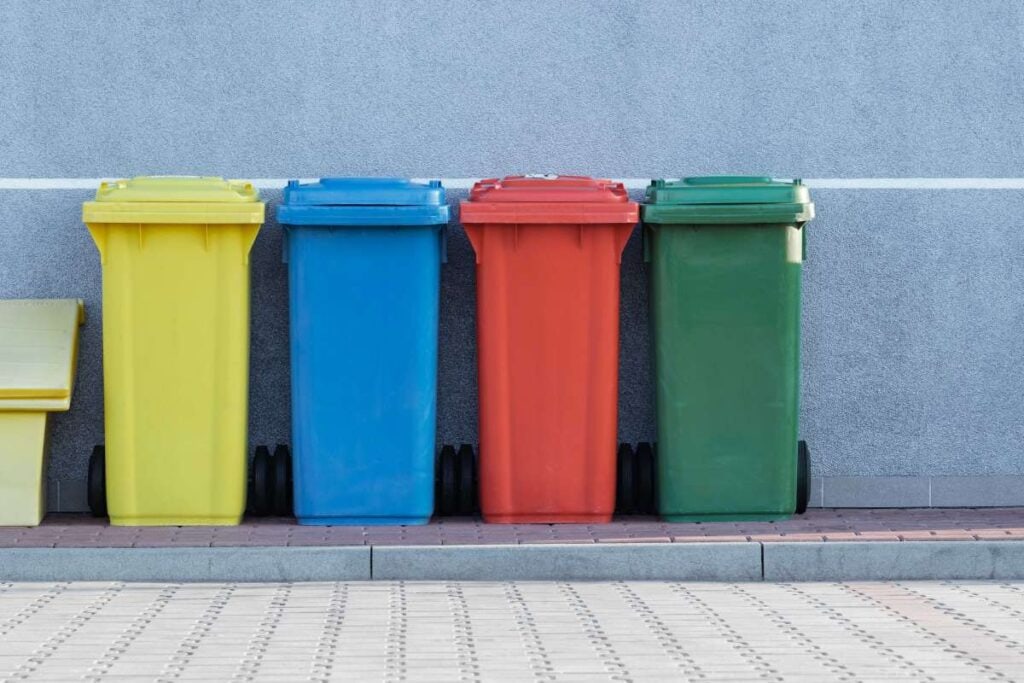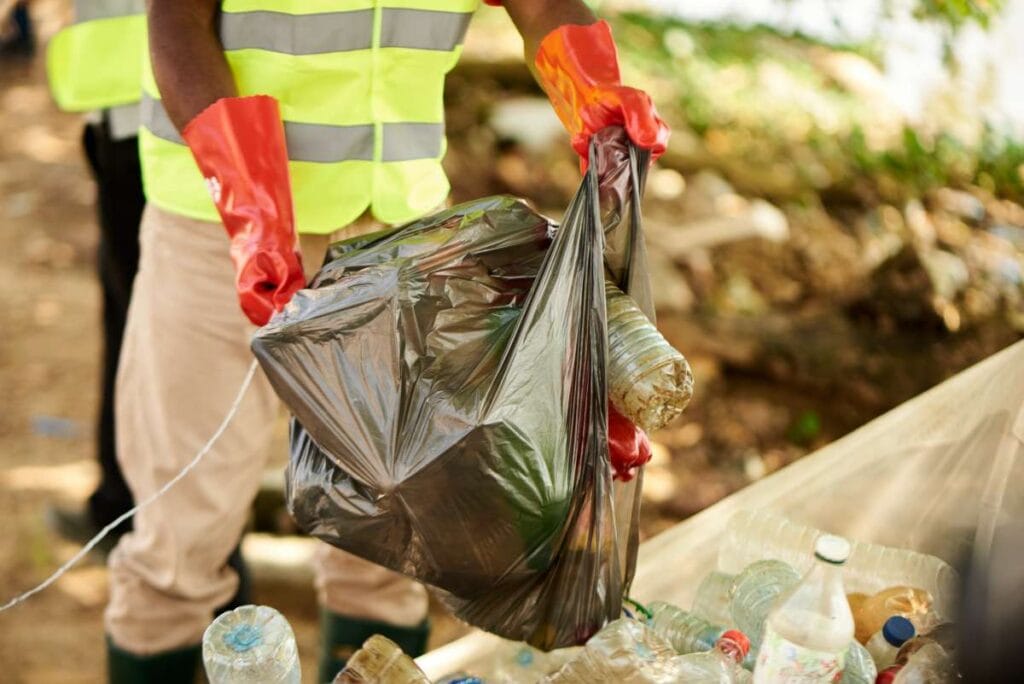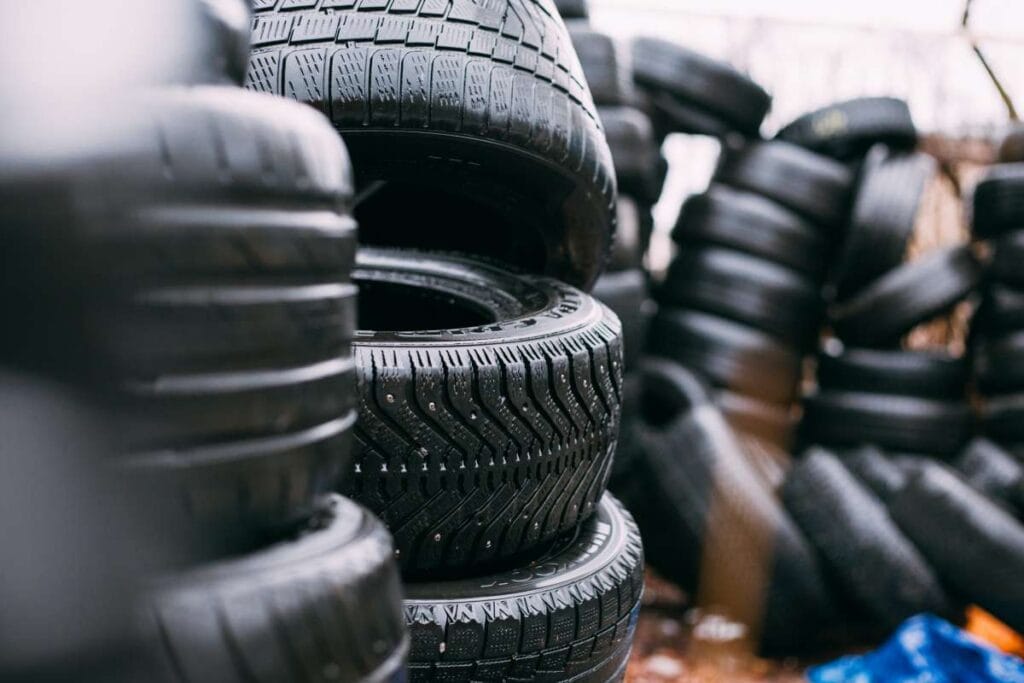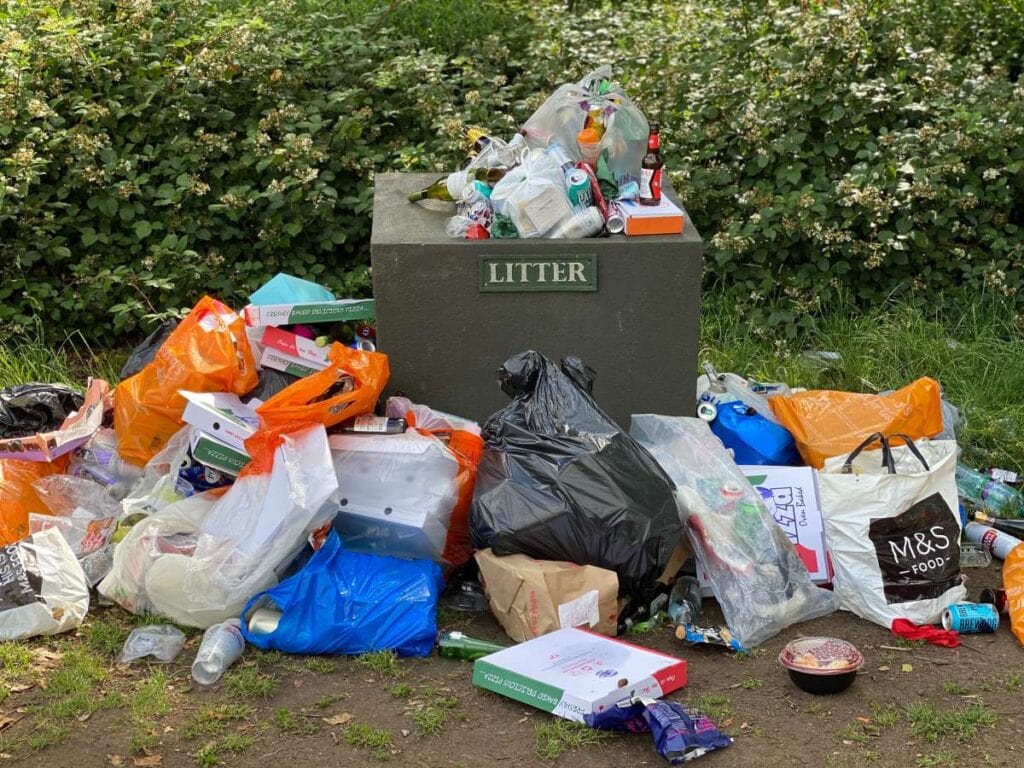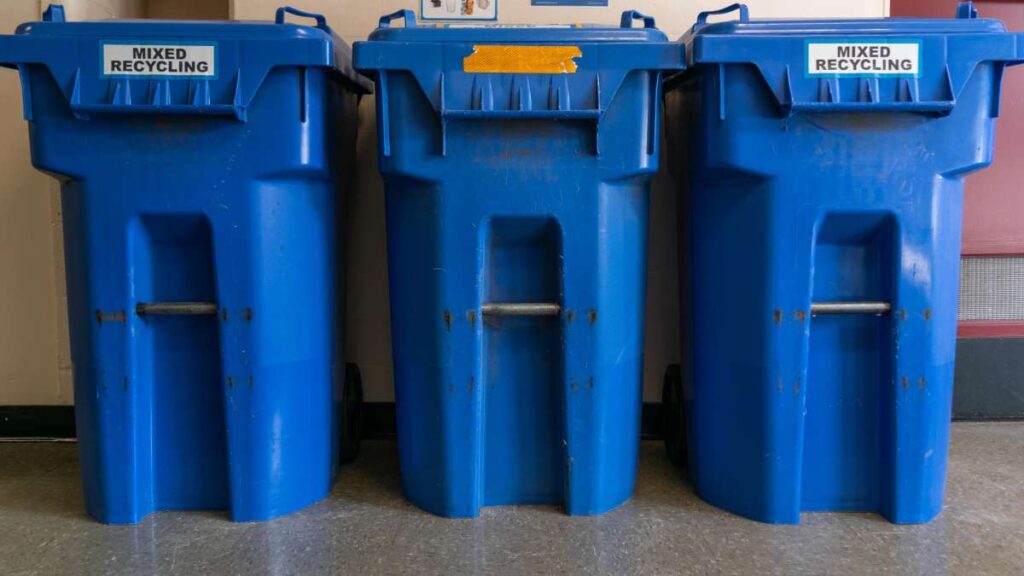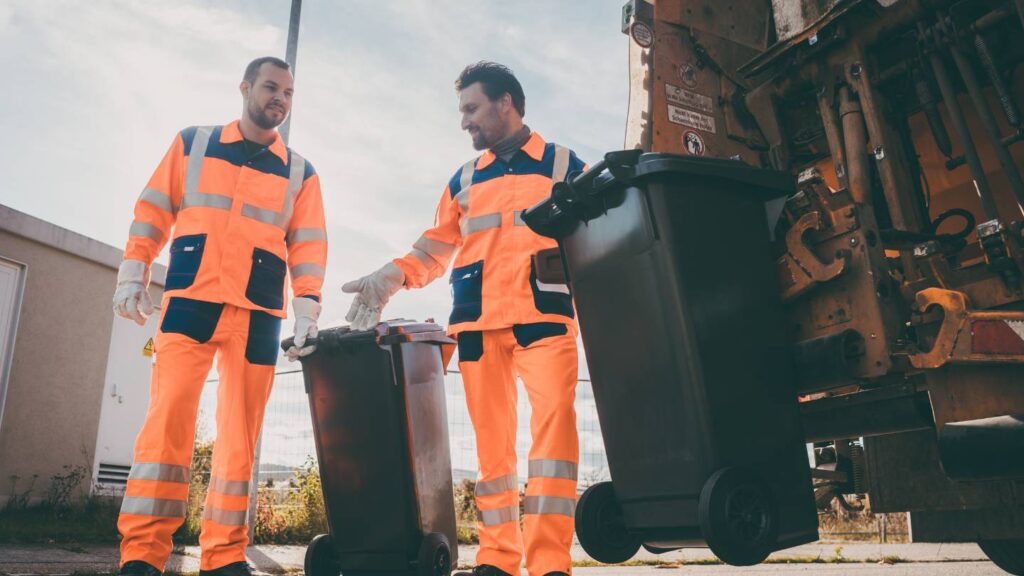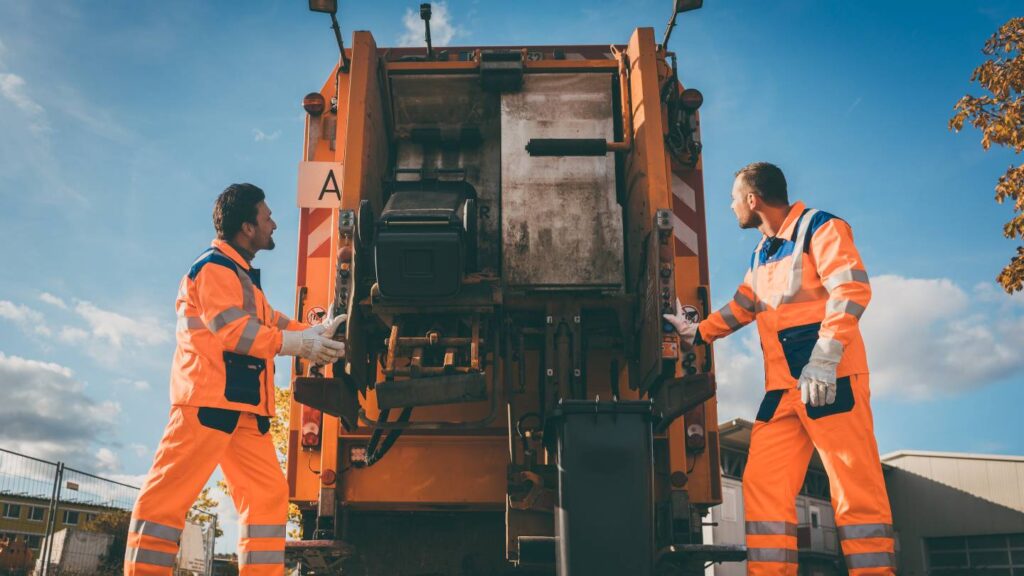Cleanliness and hygiene are of the utmost importance in healthcare settings due to the high volume of patients and staff. Proper waste management is essential to ensure the safety of patients and healthcare workers. Therefore, efficient trash collection is a key component of this. In this blog, we will discuss what hospitals may do to improve the cleanliness and safety of their waste removal processes.
Comprehensive Waste Segregation
The first and foremost step in ensuring effective rubbish removal in hospitals is implementing a robust waste segregation system. Hospitals generate various types of waste, including general, infectious, hazardous, and recyclables. Proper segregation at the source ensures that each type of waste is handled appropriately, reducing the risk of contamination and facilitating efficient disposal methods.
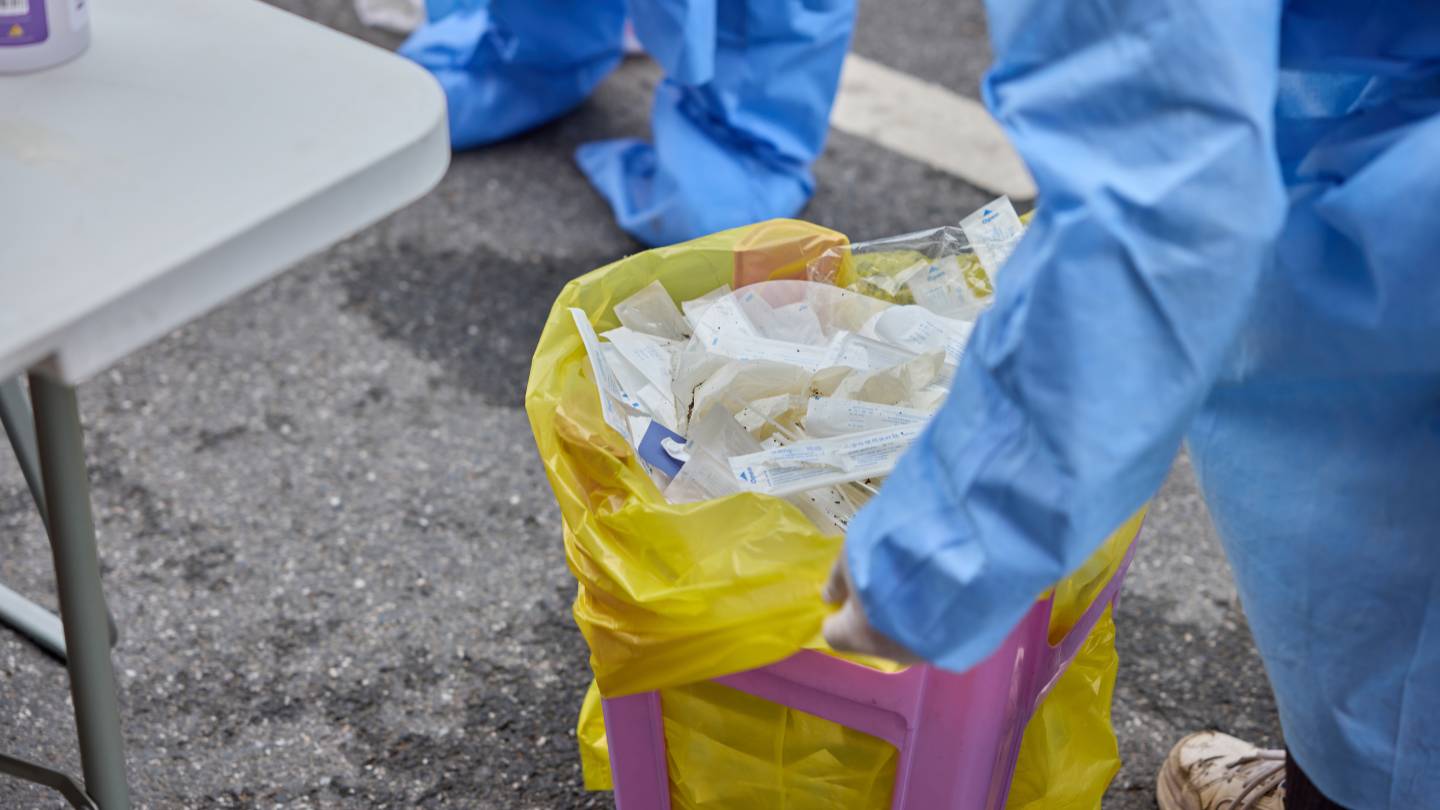
Training and Education:
Healthcare staff must receive thorough training on waste segregation protocols. Regular educational programs and workshops reinforce the importance of separating different types of waste at the point of generation. This knowledge empowers staff to make informed decisions about the disposal of specific items.
Color-coded Bins:
Utilising colour-coded bins for different categories of waste simplifies the segregation process. For example, red bins may be designated for infectious waste, yellow for hazardous waste, and green for general waste. Clear signage and labels further aid in proper disposal, minimising the likelihood of errors.
Investing in Proper Waste Storage Containers
Hospitals must invest in high-quality waste storage containers that meet industry standards and regulations. These containers should be designed to prevent leakage, odours, and contamination. Choosing containers of appropriate sizes for different types of waste helps manage rubbish effectively and ensures that containers are adequately supplied.
Sealed Bins for Infectious Waste:
Infectious waste, including materials contaminated with blood or other bodily fluids, should be disposed of in sealed bins to prevent spreading infections. These bins must be lined with biohazard bags that meet safety standards and can be securely closed.
Secure Containers for Sharps:
Proper sharps disposal, such as needles and scalpels, is crucial to prevent injuries and infections from spreading. Hospitals should provide secure containers specifically designed for sharp objects, ensuring safe disposal and minimising the risk of accidental needle sticks.
Regular and Timely Collection Services
A well-organised and timely waste collection schedule is essential for maintaining a sanitary healthcare environment. Hospitals should partner with reliable waste management companies specialising in medical waste disposal. Regular pickups prevent the accumulation of waste, reducing the risk of contamination and ensuring compliance with regulatory standards.
Adherence to Regulatory Guidelines:
Healthcare facilities must stay informed about local and national regulations regarding medical waste disposal. Adhering to these guidelines is a legal requirement and crucial for safeguarding public health and the environment.
Emergency Response Plans:
In the event of unforeseen circumstances, such as a sudden surge in waste generation or a breakdown in regular disposal services, hospitals should have emergency response plans. This ensures that rubbish is managed effectively, even in challenging situations.
Implementation of Advanced Waste Treatment Technologies
Hospitals can invest in advanced waste treatment technologies to enhance the overall sanitation of waste disposal. These technologies go beyond conventional disposal methods and offer more sustainable and environmentally friendly solutions.
On-site Sterilisation:
Some hospitals opt for on-site sterilisation of certain types of medical waste. This involves using specialised equipment to treat waste within the hospital premises, reducing the need for off-site disposal. On-site sterilisation can be particularly effective for infectious waste.
Waste-to-Energy Conversion:
To promote sustainability, hospitals may explore waste-to-energy technologies. Certain types of medical waste can be converted into energy through incineration, providing an eco-friendly alternative to traditional disposal methods.
Regular Audits and Compliance Checks
Hospitals should conduct regular audits of their waste management systems to ensure the effectiveness of rubbish removal processes. These audits help identify areas for improvement, assess compliance with regulations, and ensure that staff members consistently follow proper procedures.
Internal Audits:
Internal audits conducted by hospital staff or external consultants can evaluate the efficiency of waste segregation, storage, and disposal practices. Any deviations from established protocols can be addressed promptly through corrective measures.
External Compliance Checks:
Engaging third-party agencies to conduct compliance checks ensures an unbiased evaluation of the hospital's waste management practices. This external perspective can provide valuable insights and recommendations for continuous improvement.
Community Engagement and Awareness Programs
In addition to internal measures, hospitals should actively engage with the community to raise awareness about the importance of proper rubbish removal and waste management. Community involvement fosters a sense of responsibility and encourages environmentally conscious practices.
Public Awareness Campaigns:
Hospitals can organise public awareness campaigns to educate the community about the significance of responsible waste disposal. This may include distributing informational pamphlets, conducting workshops, or hosting community events focused on waste management.
Collaboration with Local Authorities:
Collaborating with local authorities, waste management agencies, and environmental organisations can strengthen a hospital's waste management initiatives. Such partnerships may lead to community-wide programs to reduce, reuse, and recycle waste.
What Are the Potential Drawbacks of Ineffective Waste Removal in the Hospital?
The absence of effective rubbish removal in a hospital can lead to numerous disadvantages, posing serious risks to patients and healthcare staff's health and safety. Here are some key disadvantages associated with inadequate rubbish removal in hospitals:
Infection Control Issues
Ineffective rubbish removal can result in the improper disposal of infectious waste, such as materials contaminated with blood or bodily fluids. This can spread infections within the hospital, posing a direct threat to patients, healthcare workers, and visitors.
Increased Risk of Contamination
Accumulating rubbish without proper removal can create an environment conducive to the growth of bacteria, fungi, and other pathogens. This heightened microbial presence can contaminate surfaces, equipment, and air, contributing to healthcare-associated infections (HAIs).
Occupational Hazards for Healthcare Staff
Inadequate rubbish removal increases the risk of occupational hazards for healthcare staff, including needlestick injuries and exposure to hazardous materials. Sharps, such as needles and scalpels that are not properly disposed of, pose a direct threat to the safety of medical personnel.
Unpleasant Odors and Aesthetics
Accumulated rubbish, especially if not disposed of promptly, can result in unpleasant odours and an unsightly appearance within the hospital. This creates discomfort for patients and visitors and negatively impacts the healthcare facility's overall perception.
Pest Infestations
An accumulation of waste can attract pests such as rodents and insects. Pest infestations in a healthcare setting are highly undesirable, as they can contribute to the spread of diseases, compromise hygiene, and create an environment that is not conducive to patient recovery.
Regulatory Non-Compliance
Hospitals are subject to strict regulations and guidelines regarding waste management, and failure to comply can have legal consequences. Non-compliance may result in fines, penalties, reputational damage for the hospital, and potential legal action.
Reduced Operational Efficiency
Inefficient rubbish removal can lead to cluttered and disorganised spaces within the hospital. This can impede healthcare professionals' workflow, hinder patient care delivery, and create an environment more conducive to optimal healthcare services.
Environmental Impact
Improper disposal of waste can have negative consequences for the environment. Hazardous materials may contaminate soil and water sources, leading to long-term environmental damage. In a broader context, hospitals are responsible for contributing to sustainable waste management practices.
Community Perception and Trust
A hospital's reputation is closely linked to perceptions of cleanliness and safety. Ineffective rubbish removal can erode public trust and confidence in the hospital's ability to provide a secure and hygienic healthcare environment. Negative perceptions can affect patient satisfaction and community relationships.
Emergency Preparedness Risks
Accumulated rubbish may pose challenges during emergencies, such as natural disasters or public health crises. A well-managed rubbish removal system is essential for maintaining hospital operations and responding effectively to unexpected events.
How Does Residential Rubbish Removal Differ From Hospital?
Residential rubbish removal and hospital waste management differ significantly due to the nature of the waste generated, the associated risks, and the regulatory frameworks in place. Here are the key differences between residential rubbish removal and hospital waste management:
Types of Waste
Residential Rubbish Removal: Residential waste typically consists of household trash, recyclables, and, in some cases, yard waste. It may include general household items, packaging, food waste, and non-hazardous materials.
Hospital Waste Management: Hospitals generate a diverse range of waste, including general waste, infectious waste, hazardous waste, and potentially radioactive waste. Medical facilities produce sharps, pathological waste, pharmaceutical waste, and other materials that require specialised handling and disposal.
Safety and Infection Control
Residential Rubbish Removal: Residential waste poses minimal risk to public health, and standard safety measures are sufficient for handling household trash.
Hospital Waste Management: Hospital waste, especially infectious and hazardous materials, requires strict infection control measures. Specialised containers, personal protective equipment (PPE), and adherence to stringent protocols are essential to prevent the spread of infections among patients and healthcare workers.
Regulatory Compliance
Residential Rubbish Removal: Regulations for residential waste disposal focus on general environmental concerns, such as recycling and proper disposal. Local municipalities often provide guidelines for residents to follow.
Hospital Waste Management: Hospitals are subject to strict local, national, and international regulations. Compliance with these regulations is critical to ensure medical waste's safe and environmentally responsible management.
Waste Segregation:
Residential Rubbish Removal: Residential waste is typically categorised into general, recyclables, and green waste categories. Simple separation practices are employed to facilitate recycling.
Hospital Waste Management: Medical facilities implement a detailed waste segregation system, separating different types of waste (e.g., infectious waste, hazardous waste, sharps) at the source. This is crucial for safe handling and disposal.
Specialised Equipment
Residential Rubbish Removal: Residential waste is collected using standard garbage trucks equipped to handle general household waste and recyclables.
Hospital Waste Management: Hospitals require specialised containers for various types of waste. Sharps containers, biohazard bags, and secure storage facilities are necessary to meet the unique needs of medical waste disposal.
Frequency of Removal
Residential Rubbish Removal: Residential waste is typically collected regularly, often weekly or bi-weekly, depending on local municipal services.
Hospital Waste Management: Medical waste requires more frequent and timely removal due to the potential for contamination and infection risks. Regular pickups, often multiple times a week, are common to prevent the accumulation of hazardous materials.
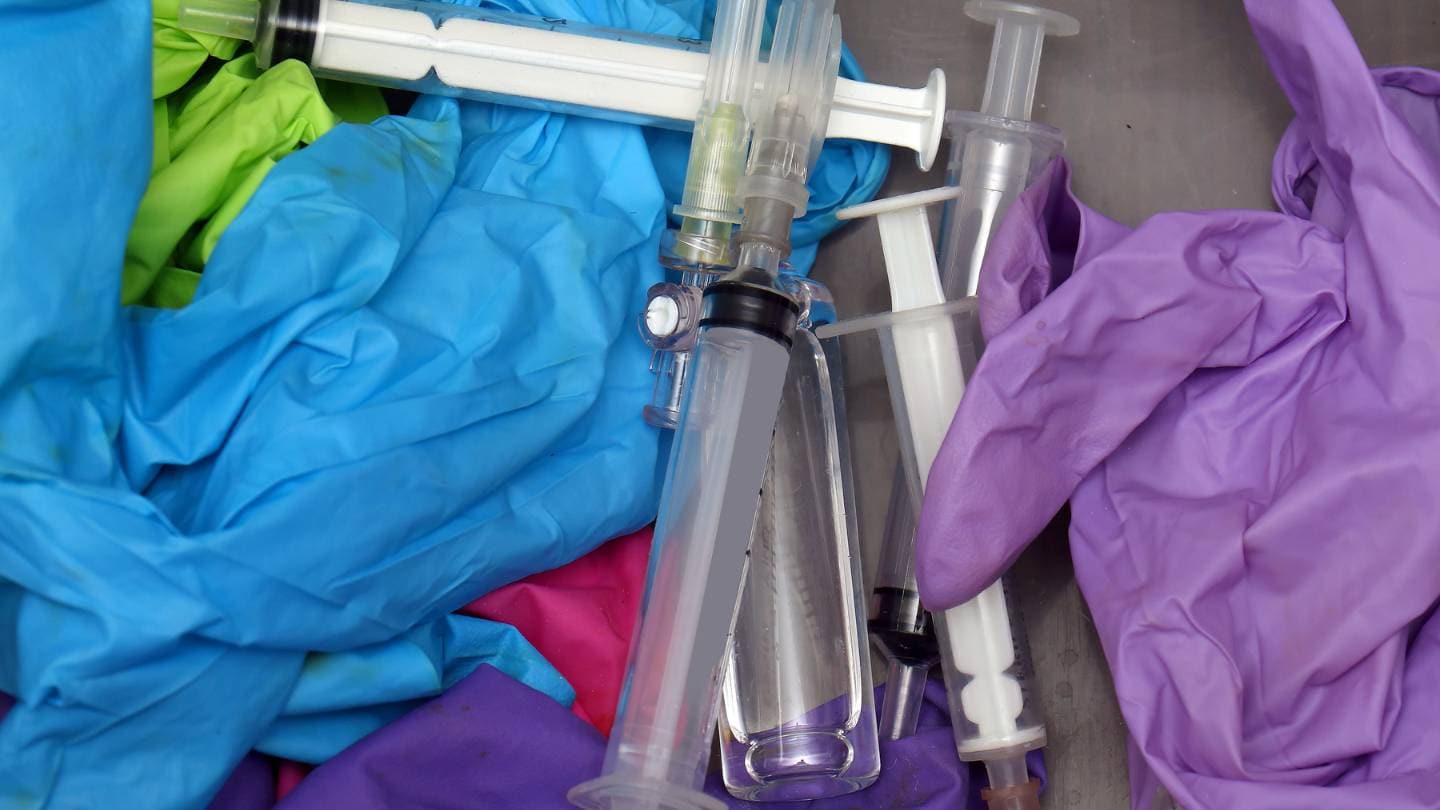
Environmental Impact
Residential Rubbish Removal: The environmental impact of residential waste is generally associated with recycling rates and landfill usage.
Hospital Waste Management: Hospitals must consider the environmental impact of medical waste disposal methods. To minimise the ecological footprint, efforts are made to adopt sustainable practices, such as waste-to-energy technologies or on-site sterilisation.
Emergency Preparedness
Residential Rubbish Removal: Emergency preparedness for residential waste removal typically involves response to natural disasters, such as floods or storms, impacting regular collection services.
Hospital Waste Management: Hospitals must have robust emergency plans to address unexpected events, ensuring continuity of waste management services during crises or public health emergencies.
Conclusion
Hospitals play an important role in ensuring cleanliness and hygiene in healthcare facilities. Proper waste management is critical for patient and healthcare worker safety, and hospitals can improve their waste removal processes by implementing comprehensive waste segregation, training staff on waste segregation protocols, investing in high-quality waste storage containers, and incorporating advanced waste treatment technologies.
Comprehensive waste segregation ensures that each type of trash is properly managed, lowering the danger of contamination. Training employees on waste segregation rules and utilizing color-coded bins makes the process easier. Hospitals should also invest in high-quality waste storage containers that adhere to industry norms and guidelines.
Regular and timely collection services are required to maintain a sanitary healthcare environment. Hospitals should work with reputable waste management providers and follow local and national rules for medical waste disposal. Emergency response plans are also necessary in the event of unforeseen occurrences.
Advanced waste treatment technologies, such as on-site sterilization and waste-to-energy conversion, have the potential to improve total waste disposal sanitation. Hospitals should undertake regular audits and compliance checks to identify areas for improvement and ensure that personnel adhere to established procedures.
The environmental impact of home garbage is generally related to recycling rates and landfill utilization. To reduce their ecological footprint, hospitals must assess the environmental impact of their medical waste disposal techniques and implement sustainable practices.
Residential waste removal emergency readiness often focuses on responding to natural catastrophes, whereas hospital waste management requires sophisticated emergency plans to address unexpected events and assure the continuity of waste management services during crises or public health situations.
Content Summary
- Implement a robust waste segregation system to handle various types of waste.
- Regular training and education on waste segregation protocols are essential.
- Use colour-coded bins for different categories of waste.
- Clear signage and labels aid in proper disposal.
- Invest in high-quality waste storage containers that meet industry standards and regulations.
- Choose containers of appropriate sizes for different types of waste.
- Dispose infectious waste in sealed bins lined with biohazard bags.
- Provide secure containers specifically designed for sharp objects.
- Partner with reliable waste management companies for regular pickups.
- Stay informed about local and national regulations regarding medical waste disposal.
- Have emergency response plans in case of unforeseen circumstances.
- Invest in advanced waste treatment technologies for sustainable and environmentally friendly solutions.
- Use specialized equipment to treat waste within the hospital premises.
- Explore waste-to-energy technologies for an eco-friendly alternative to traditional disposal methods.
- Conduct internal audits to evaluate waste segregation, storage, and disposal practices.
- Engage third-party agencies for compliance checks.
- Engage with the community to raise awareness about the importance of proper rubbish removal and waste management.
- Organize public awareness campaigns to educate the community about responsible waste disposal.
- Strengthen waste management initiatives by partnering with local authorities, waste management agencies, and environmental organizations.
- Inadequate disposal of infectious waste can spread infections.
- Increased risk of contamination due to improper disposal.
- Increased risk of needlestick injuries and exposure to hazardous materials.
- Unpleasant odors and unsightly appearance of accumulated rubbish.
- Accumulation of waste attracts pests, compromising hygiene and patient recovery.
- Failure to comply with waste management regulations can lead to legal consequences.
- Inefficient rubbish removal can lead to cluttered and disorganized spaces.
- Hazardous materials can contaminate soil and water sources, leading to long-term environmental damage.
- Ineffective rubbish removal can erode public trust in the hospital's ability to provide a secure and hygienic healthcare environment.
- Residential waste consists of household trash, recyclables, and yard waste.
- Hospital waste, especially infectious and hazardous materials, requires strict infection control measures.
- Residential waste is typically categorised into general, recyclables, and green waste categories.
- Hospital waste requires specialized containers for various types of waste.
- Residential waste is collected regularly, while hospital waste requires more frequent and timely removal.
- The environmental impact of residential waste is generally associated with recycling rates and landfill usage.
- Emergency preparedness for residential waste removal typically involves response to natural disasters.
Frequently Asked Questions
Professional trash removal services may manage domestic items, building debris, green garbage, electronic waste, and dangerous materials. They can handle many waste types and recycle or dispose of them.
Waste removal prices depend on volume, type, and location. Some firms charge by the amount of trash space in their trucks, while others offer fixed rates or customised quotes based on task requirements.
Professional trash removal services often recycle. To find recyclables, they actively sort at the collecting location. These things are recycled, helping sustainability and lowering waste disposal's environmental impact.
Scheduling trash removal is usually easy. Most services offer online or phone booking for convenient pickup times. Many removal firms attempt to respond quickly, especially for critical situations like relocation or building.
Professional trash hauliers handle dangerous materials legally and securely. Compliance with local legislation is ensured by thorough identification, containment, and disposal methods. Customers can ask about hazardous waste management and environmental and public health protection.
